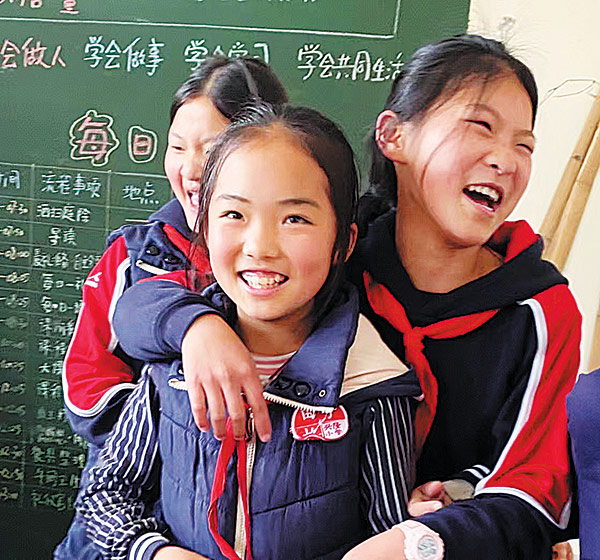School of thought


For investigative study sessions, the students will complete their research papers or experiment reports, make presentations in front of the whole school and participate in discussions.
Former research topics include subjects such as "moldy conditions of bitten apples in different environments", "why dogs greet their owners" and "how to stop boys' dormitories from being smelly".
Soon after the outbreak of COVID-19, using materials at hand, the teachers and students built a simulated fever clinic and a makeshift hospital and played the roles of patients and doctors to not only learn about the virus and the various prevention measures, but also to experience the anxiety and the goodness of people.
By searching for information online and comparing the statistics, they also learned mathematics and geography.
The landmark of the school, Liren Hall, is a Guizhou-style structure built from scrap wood collected in the village. Some villagers say the stone bases of its pillars have a 200-year history.
The teachers like to tell stories about the past and use the cultural relics as props to help the children feel connected to history, the society of their hometown and to enjoy learning at school.
The hall is where the teachers and students gather once a week to make proposals, debate and vote to decide the school's public affairs. The session is to cultivate their critical thinking, awareness of problems, eloquence and how to behave in public.
Despite these diversified courses occupying half of the curriculum, the students' performance in Chinese language, mathematics, English and PE classes is also improving.
They led those from other village primary schools in the county's unified examinations last year and continue to narrow the gap with students from urban schools, according to Feng Qiwei, a member of the county committee of the Chinese People's Political Consultative Conference, who has been supporting Tianzige's work and providing counsel for over a decade.
The school attaches particular importance to computer courses, such as coding, to help the students connect with the outside world and prepare them for future challenges.




































